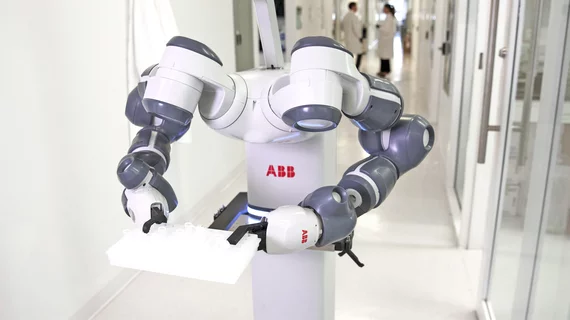Need a hand? ABB brings new laboratory robot to Texas Medical Center
ABB, an international technology company, has opened its first global healthcare research hub in Houston, Texas, to demonstrate some of its robotic solutions.
The hub, part of Texas Medical Center (TMC), will feature ABB’s YuMi laboratory robot, which was designed to perform “a wide range of repetitive and time-consuming activities.” For example, the robot is being trained to dispense medication, transport items as needed throughout a hospital and even provide patients with clean bed linens.
ABB’s internal research suggests that nearly 60,000 such robots will be in use by 2025.
“The healthcare sector is undergoing significant transformation as the diagnosis and treatment of disease advances, while coping with an aging population, increasing costs and a growing worldwide shortage of medical staff,” Sami Atiya, president of ABB’s robotics and discrete automation business, said in a prepared statement. “With our new healthcare research and development hub at TMC, we are aiming to develop answers to these challenges—together with the best minds in academia, science and medicine. Our experience in industrial and collaborative robotics will give us a strong basis to be able to adapt flexible automation to the healthcare sector.”
“A primary goal across TMC—the largest medical city in the world—is to make research happen faster while simultaneously cutting costs in order to create more rapid and cost-effective solutions for patients who are in desperate need of treatment,” Bill McKeon, president & CEO of TMC, said in the same statement. “ABB’s move into the heart of the Texas Medical Center campus with this first-of-its-kind R&D facility for creating robotics solutions in healthcare will set a new course for advancements in medicine and establish TMC as the nexus for a new kind of synergistic partnership that will shape the future of healthcare for clinicians, researchers, and patients alike.”

